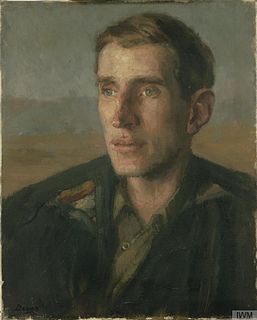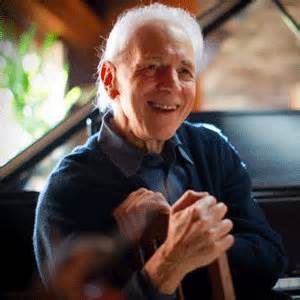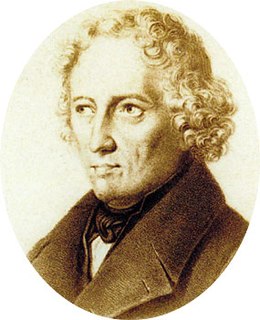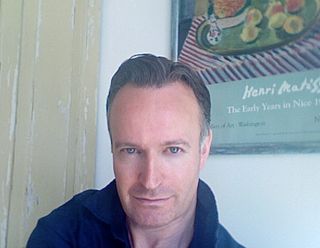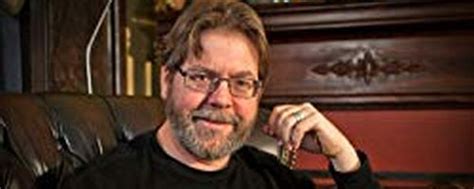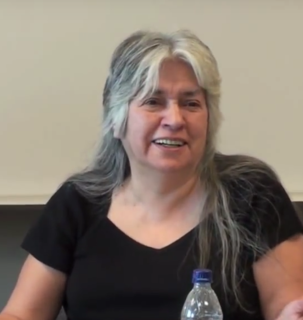Top 580 Gulliver's Travels Quotes & Sayings - Page 10
Explore popular Gulliver's Travels quotes.
Last updated on December 23, 2024.
Very many people spend money in ways quite different from those that their natural tastes would enjoin, merely because the respect of their neighbors depends upon their possession of a good car and their ability to give good dinners. As a matter of fact, any man who can obviously afford a car but genuinely prefers travels or a good library will in the end be much more respected than if he behaved exactly like everyone else.
I had not lived there a week before my feet wore a path from my door to the pond-side; and though it is five or six years since I trod it, it is still quite distinct. It is true, I fear that others may have fallen into it, and so helped to keep it open. The surface of the earth is soft and impressible by the feet of men; and so with the paths which the mind travels. How worn and dusty, then, must be the highways of the world, how deep the ruts of tradition and conformity!
I have transported many, thousands; and to all of them, my river has been nothing but an obstacle on their travels. They travelled to seek money and business, and for weddings, and on pilgrimages, and the river was obstructing their path, and the ferryman's job was to get them quickly across that obstacle. But for some among thousands, a few, four or five, the river has stopped being an obstacle, they have heard its voice, they have listened to it, and the river has become sacred to them, as it has become sacred to me.
Change begets change. Nothing propagates so fast. If a man habituated to a narrow circle of cares and pleasures, out of which he seldom travels, step beyond it, though for never so brief a space, his departure from the monotonous scene on which he has been an actor of importance would seem to be the signal for instant confusion. The mine which Time has slowly dug beneath familiar objects is sprung in an instant; and what was rock before, becomes but sand and dust.
But we can also ask for something we are much more likely to get, and that is to find a person or two, somewhere in our travels, who will tell us that we are noble enough, whether it is true or not. We can ask for someone who will say, “You are noble enough,” and remind us of our good qualities when we have forgotten them, or cast them into doubt.
The errors of a wise man are literally more instructive than the truths of a fool. The wise man travels in lofty, far-seeing regions; the fool in low-lying, high-fenced lanes; retracing the footsteps of the former, to discover where he diviated, whole provinces of the universe are laid open to us; in the path of the latter, granting even that he has not deviated at all, little is laid open to us but two wheel-ruts and two hedges.
When compiling his great dictionary, the young Noah Webster travels to the Himalayas, where he climbs to the cave of the world's wises man. 'O, great sage,' he says, 'tell me the meaning of life.' The sage sits Noah at his feet and, with great solemnity, commences to unfold the meaning of life. When finished, he places a hand on the young man's shoulder and says, 'Do you have any other questions, my son?' Noah flips a page in his notebook and says, 'You wouldn't know the meaning of lift, would you?'
For me, exploration was a personal venture. I did not go to the Arabian desert to collect plants nor to make a map; such things were incidental. At heart I knew that to write or even to talk of my travels was to tarnish the achievement. I went there to find peace in the hardship of desert travel and the company of desert peoples. I set myself a goal on these journeys, and, although the goal itself was unimportant, its attainment had to be worth every effort and sacrifice... No, it is not the goal but the way there that matters, and the harder the way the more worth while the journey.
For time not only moves inexorable forward, as the underlying grid to our personal chronicle, but is manipulated by our psychic needs and natures into various images of timelessness and timeliness. Transient moments suddenly expand, visions of infinity intervene, notes and phrases become outlets of fantasy, escape, recollection, or omen. The music travels on two planes, chronological time and psychological time. Both planes are essential and must be abundantly represented.
The late great Horace Lloyd Swithin (1844-1917), British essayist, lecturer, satirist, and social observer, wrote in his autobiographical Appointments, 1890-1901 (1902), "When one travels abroad, one doesn't so much discover the hidden Wonders of the World, but the hidden wonders of the individuals with whom one is traveling. They may turn out to afford a stirring view, a rather dull landscape, or a terrain so treacherous one finds it's best to forget the entire affair and return home.
Now, since the time of Newton there had been a debate about whether light was a wave - that is, a traveling disturbance in some background medium - or a particle, which travels regardless of the presence of a background medium. The observation of Maxwell that electromagnetic waves must exist and that their speed was identical to that of light ended the debate: light was an electromagnetic wave.
A town is a thing like a colonial animal. A town has a nervous system and a head and shoulders and feet. A town is a thing separate from all other towns alike. And a town has a whole emotion. How news travels through a town is a mystery not easily to be solved. News seems to move faster than small boys can scramble and dart to tell it, faster than women can call it over the fences.
Jacob wrote that the true poet 'is like a man who is happy anywhere, in endless measure, if he is allowed to look at leaves and grass, to see the sun rise and set. The false poet travels abroad in strange countries and hopes to be uplifted by the mountains of Switzerland, the sky and sea of Italy. He comes to them and is dissatisfied. He is not as happy as the man who stays at home and sees the apple trees flower in spring, and hears the small birds singing among the branches
Life is an experimental journey undertaken involuntarily. It is a journey of the spirit through the material world and, since it is the spirit that travels, it is the spirit that is experienced. That is why there exist contemplative souls who have lived more intensely, more widely, more tumultuously than others who have lived their lives purely externally. The end result is what matters. What one felt was what one experienced. One retires to bed as wearily from having dreamed as from having done hard physical labor. One never lives so intensely as when one has been thinking hard.
The artist who gives up an hour of work for an hour of conversation with a friend knows that he is sacrificing a reality for something that does not exist (our friends being friends only in the light of an agreeable folly which travels with us through life and to which we readily accommodate ourselves, but which at the bottom of our hearts we know to be no more reasonable than the delusion of the man who talks to the furniture because he believes that it is alive.).
I think maybe 50 years ago people and businesses felt like they had to choose between maximizing profits and making customers happy or making employees happy, and I think we're actually living in a special time where everyone's hyperconnected, whether through Twitter or blogs and so on. Information travels so quickly that it's actually possible to have it all, to make customers happy through customer service, to make employees happy through strong company cultures, and have that actually drive growth and profits.
Most Jupiter-sized planets orbit the mother star in a highly elliptical orbit. This means they will often cross the orbit of any Earth-like planet and fling it into outer space, making life impossible. But our Jupiter travels in a near-perfect circular orbit, preventing a collision with any Earth-like planet, making life possible.
The spectacular landscape circling the fortress supplies an essential backdrop, inspiring dreamers to wander its ruins for the sake of it; North American tourists, bound down by their practical world view, are able to place those members of the disintegrating tribes they may have seen in their travels among these once-living walls, unaware of the moral distance separating them, since only the semi-indigenous spirit of the South American can grasp the subtle differences.
I'm inspired by the people I meet in my travels--hearing their stories, seeing the hardships they overcome, their fundamental optimism and decency. I'm inspired by the love people have for their children. And I'm inspired by my own children, how full they make my heart. They make me want to work to make the world a little bit better. And they make me want to be a better man.
To many forms of life of our northern lands, winter means a long sleep; to others, it means what it means to many fortunate human beings - travels in warm climes. To still others, who again have their human prototypes, it means a struggle, more or less fierce, to keep soul and body together; while to many insect forms, it means death.
The federal government said today they've begun training sessions for airport security workers to provide what they call more customer satisfaction to the travels, they want to make it easier for us. They're instructing security guards to glance at your luggage tags so that they can call you by your first name. Isn't that creepy? The guy touching your wife, calling her by her first name.
Just the way sound creates visible waves as it travels through a droplet of water, our "belief waves" ripple through the quantum fabric of the universe to become our bodies and the healing, abundance, and peace-or disease, lack, and suffering-that we experience in life. And just the way we can tune a sound to change its patterns, we can tune our beliefs to preserve or destroy all that we cherish, including life itself.
My travels have always been of the same kind. No matter where I've gone or why I've gone there it ends up that I never see anything. Becoming a movie star is living on a merry-go-round. When you travel you take the merry-go-round with you. You don't see natives or new scenery. You see chiefly the same press agents, the same sort of interviewers, and the same picture layouts of yourself.
My solo travels in Paris have brought many perfect hours of being alone but not a moment of loneliness. People who depend on other people are often in hiding from themselves. Two and a quarter million people live in the City of Light: you will see many of them and you will pass them in the street, but when you see Notre Dame after dark and walk home and perhaps stop to have a drink in the Marais, you can feel that the only thing that is missing from your experience is the common dependence on someone to distract your attention. You are living without it: you are on vacation.
Your body, which is bonding millions of molecules every second, depends on transformation. Breathing and digestion harness transformation. Food and air aren’t just shuffled about but, rather, undergo the exact chemical bonding needed to keep you alive. The sugar extracted from an orange travels to the brain and fuels a thought. The emergent property in this case is the newness of the thought; no molecules in the history of the universe ever combined to produce that exact thought.
It had come to me not in a sudden epiphany but with a gradual sureness, a sense of meaning like a sense of place. When you give yourself to places, they give you yourself back; the more one comes to know them, the more one seeds them with the invisible crop of memories and associations that will be waiting for you when you come back, while new places offer up new thoughts, new possibilities. Exploring the world is one of the best ways of exploring the mind, and walking travels both terrains.
Hateful material travels the globe. A few years ago, CNN, America's Der Sturmer, ran a story about Black parents being so low down that they abandoned their children and the children had to eat rats. I was at a University in Wisconsin at the time and the mother of a student from South Africa called to see whether the story was true. She had seen it all the way over there. The story was untrue. The children lied. CNN never corrected the story.
You know, your first album is about really amazing things. Your first album is always about coming of age, first love, first loss, usually you suffer a first loss of someone that you love to death, even, you know, really big life lessons, things you learn from your parents' divorce or from the travels that you took.
I like to borrow a metaphor from the great poet and mystic Rumi who talks about living like a drawing compass. One leg of the compass is static. It is fixed and rooted in a certain spot. Meanwhile, the other leg draws a huge wide circle around the first one, constantly moving. Just like that, one part of my writing is based in Istanbul. It has strong local roots. Yet at the same time the other part travels the whole wide world, feeling connected to several cities, cultures, and peoples.
I think grief is a huge subject; it's one of the things that everybody is going to confront in one way or another. There's been a lot of books written about how Americans have an odd way of trying to defer grief or minimize the need to grieve. People used to have a lot more ritual grief in their lives. For the most part, we think of it as a strictly temporal process: you grieve for a time and then you're over [it], but it's also a spatial process. It travels across a map.
Religion is simply an ideal. It is an ideal force that tends to free the human being from material bonds. I do not believe that matter and energy are interchangeable, any more than are the body and soul. There is just so much matter in the universe and it cannot be destroyed. As I see life on this planet, there is no individuality. It may sound ridiculous to say so, but I believe each person is but a wave passing through space, ever-changing from minute to minute as it travels along, finally, some day, just becoming dissolved.
Actually, when I think about growing up, I feel most affected by two travels that I made working in cargo boats when I was 16 and 18. One of them crossed through the Mississippi and Baton Rouge and Mobile, Alabama, and another went all the way to Europe. On the last trip, I stayed in Europe for one year with $1,000, working everywhere I could, doing everything. Those years shaped me a lot and taught me the value of exploring different things.
Wind, weather, power, load - gradually these elements stop churning in my mind. It's less a decision of logic than a feeling, the kind of feeling that comes when you gauge the distance to be jumped between two stones across a brook. Something within you disengages itself from your body and travels ahead with your vision to make the test. You can feel it try the jump as you stand looking. Then uncertainty gives way to the conviction that it can or can't be done.
We attach our feelings to the moment when we were hurt, endowing it with immortality. And we let it assault us every time it comes to mind. It travels with us, sleeps with us, hovers over us while we make love, and broods over us while we die. Our hate does not even have the decency to die when those we hate die-for it is a parasite sucking OUR blood, not theirs. There is only one remedy for it. [forgiveness]
In my formative years the people who influenced me most were the Christian existentialists, I mean men like Munier and Kierkegaard and perhaps most of all Nicholas Berdyaev and in my travels I looked for one thing more than anything. I rarely discussed, probably mainly because of language difficulties, metaphysics with the various religious people of other groups I'd meet with. But I'd very much try to see how they were incarnated, how their particular soul was incarnated or took roots into reality.
I have neither the scholar's melancholy, which is emulation; nor the musician's, which is fantastical; nor the courtier's, which is proud; not the soldier's which is ambitious; nor the lawyer's, which is politic; nor the lady's, which is nice; nor the lover's, which is all these: but it is a melancholy of mine own, compounded of many simples, extracted from many objects, and indeed the sundry contemplation of my travels, which, by often rumination, wraps me in a most humorous sadness.
Like Sylvia Plath, Natalie Jeanne Champagne invites you so close to the pain and agony of her life of mental illness and addiction, which leaves you gasping from shock and laughing moments later: this is both the beauty and unique nature of her storytelling. With brilliance and courage, the author's brave and candid chronicle travels where no other memoir about mental illness and addiction has gone before. The Third Sunrise is an incredible triumph and Natalie Jeanne Champagne is without a doubt the most important new voice in this genre.
Wickedly Dangerous translates a terrifying figure from folklore , the Baba Yaga, into the smart, resourceful, motorcycle-riding Barbara Yager, who travels with her dragon-disguised-as-a-dog best friend, righting wrongs and helping those in need. But when she stumbles into a town whose children are vanishing, and meets the haunted young sheriff trying to save them, what was a job becomes very personal. This is urban fantasy at its best, with all the magic and mayhem tied together with very human emotions, even when the characters aren't quite human.
I think the arts has great potential to create citizens. Citizenship is about the direction your imagination travels. We can't plan or calculate or examine citizenship; it's an imagined thing. Community is an imagined thing. And if your imagination isn't working - and, of course, in oppressed people that's the first thing that goes - you can't imagine anything better. Once you can imagine something different, something better, then you're on your way.







